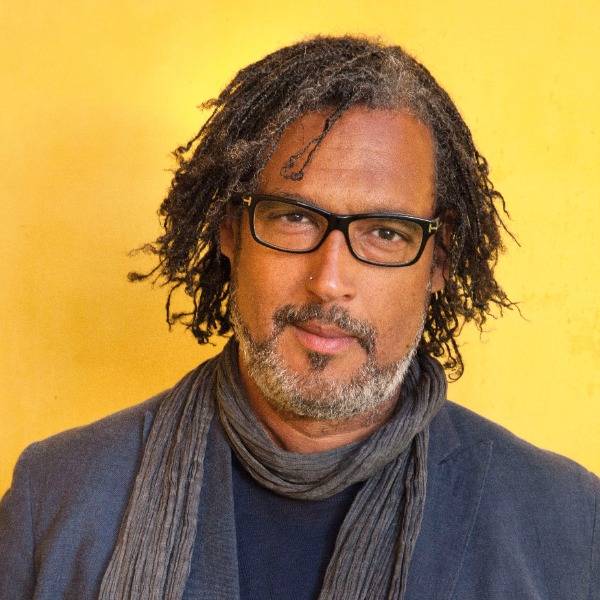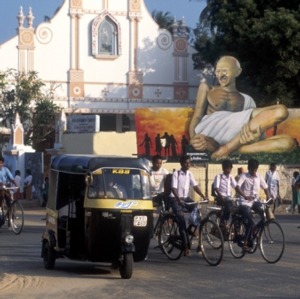In the middle of Pennsylvania Avenue in Washington a middle-aged woman with a weather-beaten face and a brown wig sits on a milk crate demonstrating against US foreign policy - as she has done for the last 21 years. It doesn't take long for most Americans to realise that Concepcion Picciotto is European. She represents the stereotype of Europe in America: naïve and weak, protected by the Washington Police Department without paying for its upkeep, unable to suggest any policy initiatives of her own but happy to lecture the White House.
But maybe the time has come for Concepcion to rise from her crate. It is not as if George Bush is listening to her anyway. And her obsession with America is blinding her to Europe's growing importance. There is still plenty wrong with the European Union from the absurdity of its agricultural subsidies to the duplication of its defence budgets but beyond the tangle of bureaucracy the European Union has been changing the nature of political power.
The fact that President Bush chose to come to Brussels for his first state visit is a recognition that for the first time in 50 years, it is the US that needs Europe's help, rather than the other way around. Americans realise that, without European diplomacy, money and soft power, freedom's march would be a lot more halting. In Kiev, Sarajevo, Ankara, Ramallah and even Tehran, the EU is having a more constructive impact than the US. What the Bush visit recognised is that Europeans often by accident have been developing a new kind of power that cannot be measured in terms of military budgets or smart missile technology. It works in the long term, and is about reshaping the world rather than winning shortterm tussles. When we stop looking at the world through American eyes, we can see that each element of European 'weakness' is in fact a facet of its extraordinary 'transformative power'.
Europe's power is easy to miss. Although Eurosceptics talk about the EU as a project that is destroying national identities and diversity, the truth is the exact opposite. Unlike American power, which is broadcast through bold declarations and blueprints, the European political project has, from the beginning, been deliberately understated. After the trauma of the First World War the French poet Paul Valery said "we hope vaguely, we dread precisely". The European project's founder Jean Monnet turned this into a dictum for the organisation of the European Union. Like an 'invisible hand', it operates through the shell of traditional political structures.
Although the European Union is responsible for up to half of its member states' laws, most of their trade, and many policy decisions from agriculture to monetary policy it's practically invisible. Take Britain. There are no European courts, legislative chambers, or business regulations on display in London. Instead, the EU operates through the shell of traditional political structures. The British House of Commons, British law courts, and British civil servants are still there, but they all implement and uphold European law. Europe doesn't talk about a 'single sustainable model of progress' like America. Rather, by creating common standards that are implemented through national institutions, Europe can take over the world without becoming a target for hostility. The same is true with European troops abroad, who often serve under the United Nations or NATO flags rather than the European one. While every US company, embassy, and military base is a terrorist target, Europe's invisibility allows it to spread its influence without provocation.
Europe doesn't change countries by threatening to invade them: its biggest threat is having nothing to do with them at all. The promise of eventual membership has transformed the nature of countries as diverse as Poland, Turkey and Romania. While the EU is deeply involved in Serbia's reconstruction and supports its desire to be 'rehabilitated' as a European state that eventually joins the EU, the USA offers Colombia no such hope of integration through multilateral institutions or structural funds, only the temporary 'assistance' of American military training missions and aid.
If you look at a map of the world, you can see Europe's influence spreading: Around the 450 million citizens of the European Union, there are another one and a half billion people who depend completely on the EU as their biggest trade partner, source of credit, foreign investment, and aid. These 2 billion people (one third of the world's population) live in the 'Eurosphere': Europe's zone of influence, which is gradually being transformed by the European project.
Europe's secret weapon is the law. Europeans tend not to focus on classic geopolitics when they talk to other countries; instead they use the law to change them from within. The USA might have changed the regime in Afghanistan, but Europe is changing all of Polish society, from its economic policies and property laws to its treatment of minorities and what gets served on the nation's tables, by getting it to adopt the 80,000 pages of laws that Europeans have developed together. The lone superpower can bribe, bully, or impose its will almost anywhere in the world, but when its back is turned, its potency wanes. The strength of the EU, conversely, is broad and deep: once sucked into its sphere of influence, countries are changed forever.
In every corner of the world, countries are drawing inspiration from the European model and nurturing their own neighbourhood clubs, from Asean in South East Asia and Mercosur in South America to the African Union and the Arab League. While global institutions such as the United Nations, the IMF and the World Bank continue to be playthings of the great powers, these regional organisations are starting to deliver real benefits. In Sudan in 2004, the African Union sent 4,000 troops to the Darfur region while the UN Security Council was bogged down in a debate about whether the violations really constituted genocide. In the Pacific, APEC is becoming a vehicle for promoting open trade and investment between the twentyone countries of the region. The Arab world is talking of turning the Arab League into an Arab Union complete with parliament and single currency to build on the progress that has already been made on an Arab Free Trade Agreement, the Arab Monetary Fund, and the Islamic Development Bank.
Many people have focused on the rise of great powers such as China and India and the implications they will have on world order. There is no doubt that they will challenge the 'unipolar world' shaped by the preferences of Americans and Europeans, who between them make up less than 15 per cent of the world's population.
But an even bigger threat to the 'unipolar moment' comes from the fact that there is another tier of countries around the world from Brazil and Mexico to South Africa and Nigeria, Japan and South Korea that have looked at the way the European Union has given countries an ability to shape their destiny on the world stage out of all proportion to their wealth, military might, or population size. They have seen that regional clubs can help to overcome historical rivalries and tensions, foster democracy, speed up the integration of countries into the world economy, and help to develop common solutions to problems that cut across borders from organised crime to pollution. And as each region develops its own arrangements, they will cumulatively have an impact on the world order.
Nearly five hundred years ago, Europe invented the most effective form of political organisation in history: the nationstate. Through a series of wars and conquests, this form of political organisation spread like a virus, so that by the twentieth century it was the only way of organising politics eliminating empires, citystates, and feudal systems. Because nationstates were most comfortable dealing with other nationstates, other political systems faced a stark choice: become a nationstate, or get taken over by one.
In the second half of the twentieth century, Europeans started to reinvent this model. As the EU develops ever greater global clout and spreads to take over a continent, other countries have been faced with an equally stark choice: join the European Union, or develop your own union based on the same principles of international law, interfering in each other's affairs, and peace as an ideology. By the end of the twentyfirst century, in the new regional world, you will need to be part of a club to have a seat at the table. The world that emerges will be centred around neither the United States nor the United Nations, but will be a community of interdependent regional clubs.
As the momentum for regional organisation picks up, great powers like the United States will inevitably be sucked into the process of integration. They might be able to slow the process, but they won't be able to stop it. As this process continues, we will see the emergence of a 'New European Century'. Not because Europe will run the world as an empire, but because the European way of doing things will have become the world's.

